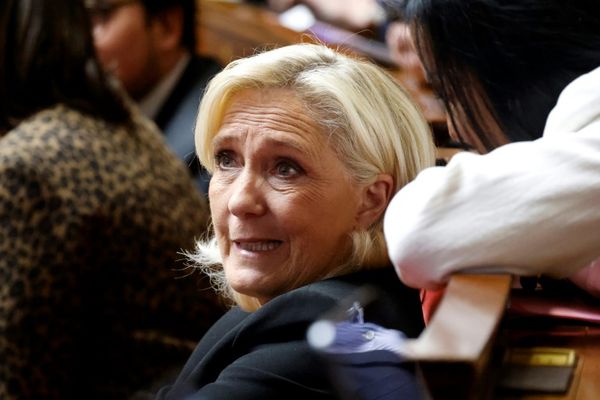
Google has been fined €250m (£213m) by French regulators for breaching an agreement over paying media companies for reproducing their content online.
France’s competition watchdog said on Wednesday that it was fining the US tech company for breaches linked to intellectual property rules related to news media publishers. The regulator also cited concerns about Google’s AI service.
The competition authority said Google’s AI-powered chatbot Bard – since rebranded as Gemini – was trained on content from publishers and news agencies without notifying them.
The watchdog said in a statement that the fine was for “failing to respect commitments made in 2022” and accused Google of not negotiating in “good faith” with news publishers on how much to compensate them for use of their content.
Google had pledged not to contest the facts as part of settlement proceedings, the watchdog said, adding the company also proposed a series of measures to remedy certain shortcomings.
France has been battling for years to protect the publishing rights and revenue of its press and news agencies against what it termed the domination of powerful tech companies that share news content or show news stories in web searches.
Google and other online platforms have been accused of making billions from news without sharing the revenue with those who gather it.
To tackle this, the EU created a form of copyright called “neighbouring rights” that allows print media to demand compensation for using their content.
France has been a test case for the EU rules. In 2019, it was the first EU country to enact the directive on the publishing rights of media companies and news agencies, which required large tech platforms to open talks with publishers seeking remuneration for use of news content. After initial resistance, Google and Facebook both agreed to pay some French media for articles shown in web searches.
The latest fine is linked to a copyright dispute in France over online content. The case was triggered by complaints in 2019 from some of the country’s biggest news organisations representing French magazines and newspapers, as well as the news agency Agence France-Presse (AFP).
In 2022, French regulators accepted commitments from Google to negotiate fairly with news organisations.
Under the agreement, the tech company has to provide news groups with a transparent offer of payment within three months of receiving a copyright complaint.
The dispute appeared to be resolved in 2022 when Google dropped its appeal against an initial €500m fine issued at the end of an investigation carried out by the French competition watchdog. Google had fought hard against the idea of paying for content and was fined €500m in 2021 for failing to negotiate in good faith.
In Wednesday’s statement, the watchdog said Google violated the terms of four out of seven commitments agreed in the 2022 settlement, including conducting negotiations with publishers in good faith and providing transparent information.
The watchdog in particular cited Google’s AI chatbot Bard, launched in 2023, which it said was trained on data from unspecified media outlets and news agencies without the company informing them or the regulator.
“Subsequently, Google linked the use of the content concerned by its artificial intelligence service to the display of protected content,” the watchdog said, adding that in doing so Google hindered the ability of publishers and press agencies to negotiate fair prices.
The fine comes as many publishers, writers and newsrooms seek to limit the scraping – or automatic collection of data – by AI services of their online content without their consent or fair compensation.
In a statement, Google said: “Google is the first and only platform to have signed a significant number of licensing agreements with 280 French news publishers under the European copyright directive. These cover more than 450 of their publications – and pay publishers tens of millions of euros a year. Despite this progress, the French competition authority today imposed a €250m fine on Google for how we have conducted those negotiations. They also insisted on changes to how we negotiate, which we have agreed to as part of a settlement of a long-running case.”
The statement added: “We’ve settled because it’s time to move on and, as our many agreements with publishers show, we want to focus on the larger goal of sustainable approaches to connecting people with quality content and on working constructively with French publishers. But it’s important to note that the fine is not proportionate to issues raised by the French competition authority. It also doesn’t sufficiently take into account the efforts we have made to answer and resolve the concerns raised – in an environment where it’s very hard to set a course because we can’t predict which way the wind will blow next.”
Agence France-Presse and Reuters contributed to this report







